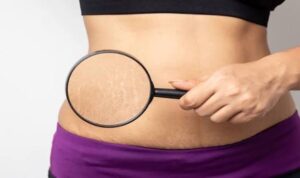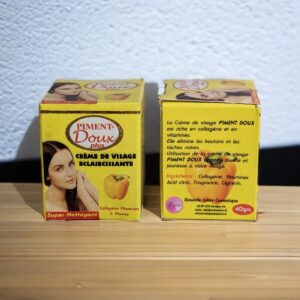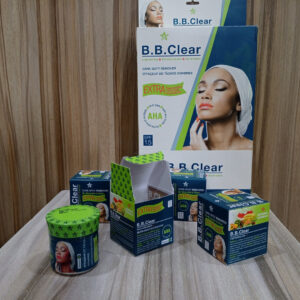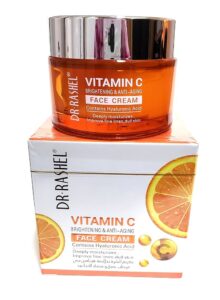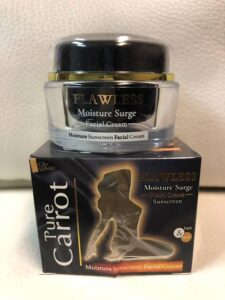
Kojic acid soap is used to lighten hyperpigmentation, or dark areas on the skin. Fermented rice wine or fungus are the sources of kojic acid.
When applied topically, kojic acid helps stop the skin from producing the enzyme tyrosinase, which aids in the production of skin pigment (melanin). Therefore, applying kojic acid soap may aid in lightening dark spots caused by sun damage or acne scars on your skin. Although kojic acid soap is thought to be safe for skin, it could have unfavorable side effects including sensitivity or inflammation.
Why Is Soap Made With Kojic Acid?
Dermatologists suggest kojic acid as a skin-lightening substance to minimize hyperpigmentation, or dark spots, and uneven skin tone. Kojic acid soap is usually added to soaps and cleansers, then applied to the face or hands and rinsed off. Using kojic acid soap can help remove hyperpigmentation, scars from acne, and sun damage over time.
The use of kojic acid as a component in skin-bleaching cosmetics has a contentious past. Skin bleaching is a negative technique that harms persons with darker skin tones by creating detrimental and unattainable beauty standards. There are still several kojic acid soaps on the market that claim to “whiten” or bleach skin. Kojic acid is recommended by dermatologists to treat hyperpigmentation on darker skin tones; nevertheless, it does not bleach skin.
Soaps brands that has Kojic acid as major Ingredient: Kojie San soap, Bio oil soap, Gluta C, Koji Soap etc
Possible Benefits of Kojic Acid Soap
- According to personal experience, many people report that dark spots can be faded with kojic acid soap. To demonstrate that kojic acid soap functions similarly to other kojic acid treatments, however, more research is needed. Instead of soap, serums and other topical skincare products are the focus of research on the advantages of kojic acid. Nevertheless, utilizing kojic acid soap may also benefit from the whitening and antioxidant properties of kojic acid.
- Topical kojic acid is frequently used by dermatologists to treat hyperpigmentation, or dark patches on the skin. Since kojic acid is a tyrosinase inhibitor, it can aid in the treatment of hyperpigmentation. This indicates that kojic acid lowers melanin skin pigment and prevents your skin from producing tyrosinase. Greater amounts of melanin in those skin cells are found in dark patches.
- As an antioxidant, kojic acid can aid in the defense against dangerous substances known as free radicals that are produced when exposed to the sun. The development of black patches on the skin may be facilitated by free radicals.
- Kojic acid can aid in the treatment of hyperpigmentation brought on by UV exposure, melasma, or acne scars. People with darker skin tones or those who are pregnant are more likely to develop melasma, which usually manifests as dark patches of skin on the face. According to research, kojic acid is a useful component for lightening dark spots like melasma.
According to certain research, applying 1% kojic acid reduced participants’ melasma by 58%. But, when paired with other skin-brightening substances like hydroquinone or glycolic acid, kojic acid treatments were frequently more effective in correcting pigmentation. Further research is needed to understand the effectiveness of kojic acid soap.
Risks and Safety Measures
It is not thought to be harmful to use kojic acid soap if you use a high-quality product with a minimal kojic acid concentration. Studies indicate that kojic acid is less dangerous at doses of 2% or below. Kojic acid, however, might not be suitable for everyone and can have adverse consequences such as:
Sun sensitivity: Kojic acid increases your skin’s susceptibility to UV radiation by decreasing UV-protective melanin, which can raise your risk of sun damage.
Skin irritation: If you already have sensitive skin, kojic acid may aggravate and dry up your skin.
Allergies: Kojic acid can cause allergic reactions in certain people, which can lead to contact dermatitis, a dry, itchy skin rash.
Before using kojic acid soap, taking the following precautions can help you reduce unwanted side effects:
- Do a patch test to check for any skin sensitivities before using kojic acid soap. Apply a small amount to the inside of your wrist.
- Always wear SPF: You should always protect your skin from sun damage by using SPF every day, as kojic acid might make your skin more susceptible to the sun.
- Never apply to open or irritated skin: Kojic acid soap use might aggravate skin that is already sensitive.
Where to Buy Kojic Acid Soap
Most shops and establishments that provide skin care products carry kojic acid soap. Kojic acid soap is frequently found in the beauty or skincare sections of large online retailers, pharmacies, health food shops, supermarkets, and merchants of cosmetics. It is imperative to procure kojic acid soap from a producer with a good reputation.
Kojic acid is not recognized as a medicine by NAFDAC. Kojic acid products, on the other hand, are classified as cosmetics since they are used on the body to purify or change appearance. This implies that before kojic acid soap is put on store shelves, the NAFDAC need not verify its safety. The maker bears the responsibility of ensuring that their product functions as intended and is safe.
Ways to Use Kojic Acid Soap
Use kojic acid soap as a cleanser or spot treatment in your current skincare regimen. Kojic acid soap can be used as a spot therapy, meaning that you just apply the soap to certain dark spots, or you can use it daily on places such as the hands and face that are hyperpigmented.
You might discover that your skin responds better to kojic acid soap when used as a spot treatment because kojic acid can be drying and irritating. It’s usually preferable to use kojic acid at night because it increases skin sensitivity to sunlight.
The results of kojic acid soap can take months to appear, and kojic acid products frequently take up to three months to start working. Given that using kojic acid soap frequently might irritate and dry up the skin, some people in order to prevent irritation, apply kojic acid soap for a few months and then take a break. To assist prevent irritation, some persons might also use kojic acid soap every other day.
How To Use Kojic Acid Soap:
- Use lukewarm water to moisten the area that needs to be cleaned.
- Use water to create a lather for your kojic acid soap, then gently apply the soap to your skin with your fingertips.
- Give the kojic acid soap a minute or two to work on your skin.
- After using lukewarm water to gently rinse off the soap, pat dry with a towel.
- Afterwards, apply a moisturizer.
- Use sunscreen (if cleaning during the day) with a minimum SPF of thirty.
How To Apply Kojic Acid Soap As Black Spot Treatment:
- Wet a clean cotton swab or your finger and use it to massage a tiny bit of kojic acid soap off the bar after washing your face with a mild cleanser.
- Apply the soap swab to the hyperpigmented regions.
- Give your skin a few minutes to be treated by the kojic acid soap therapy.
- Use lukewarm water to gently rinse off any stains with kojic acid soap, then pat dry with a towel.
- Apply a moisturizer to your entire face or the areas you treated as part of your skincare routine thereafter.
- If you are applying sunscreen during the day, be sure it is at least SPF 30.
Kojics Acid Soap For Dark Spots:
Any soap brand made of Kojic acid, has the tendency to clear dark spots. But I might be recommending Kojie San soap in that regard.
Kojic Acid Soap Price
Most of Kojic acid soap brands sales from something 1,500 naira upwards in Nigeria.
Kojis Acid Soap For Black Skin
Same thing I said if there’s any particular one for dark spots is what I would still say here. Just go to the market and make your brand choice as all Kojic acid soap is made for skin lightening. So if you are looking to lighten your skin color, stay away from any cosmetics that contains Kojic acid not only soaps.
Conclusion
Kojic acid soap is used to lighten dark patches on the skin that result from sun exposure, melasma, or acne-related hyperpigmentation. Studies indicate that kojic acid therapies, including topical serums, can aid in the fading of hyperpigmentation.
Since kojic acid is the active ingredient in the soap, it may still help lighten dark spots even though there isn’t enough data to support its effectiveness over dermatological treatments.
Patch test the kojic acid soap on your wrist before using it. Sun sensitivity and inflammation can be brought on by kojic acid. To further protect your skin, apply sunscreen and a regular moisturizer.
For your skincare/Bodycare consultation, do well to email me at editor@bodycare.com.ng


